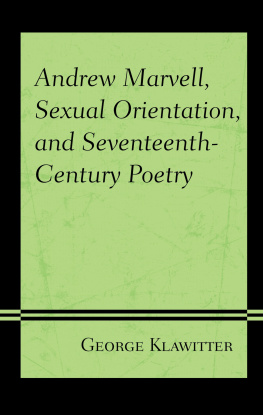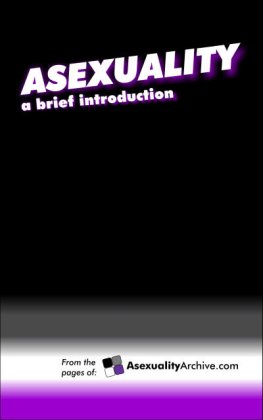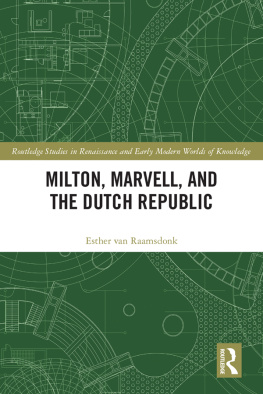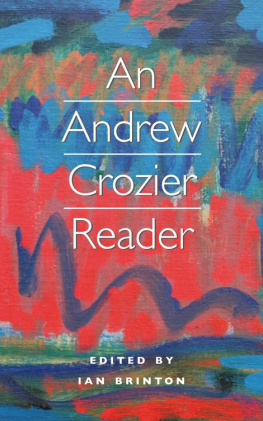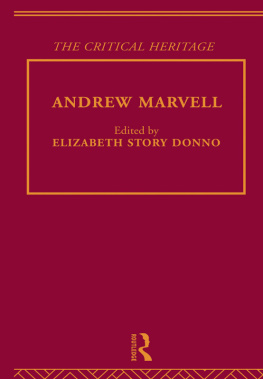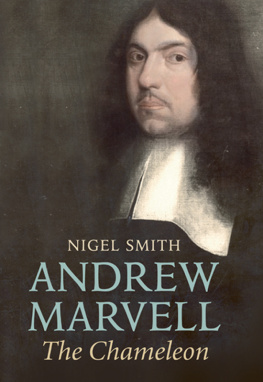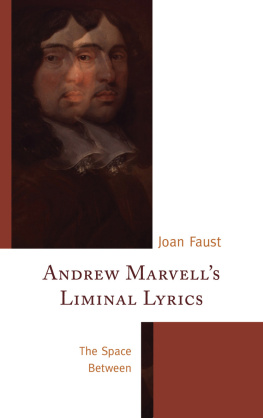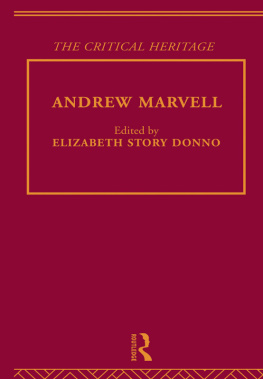Klawitter George - Andrew Marvell, Sexual Orientation, and Seventeenth-Century Poetry
Here you can read online Klawitter George - Andrew Marvell, Sexual Orientation, and Seventeenth-Century Poetry full text of the book (entire story) in english for free. Download pdf and epub, get meaning, cover and reviews about this ebook. year: 2012, publisher: Fairleigh Dickinson UP, genre: Romance novel. Description of the work, (preface) as well as reviews are available. Best literature library LitArk.com created for fans of good reading and offers a wide selection of genres:
Romance novel
Science fiction
Adventure
Detective
Science
History
Home and family
Prose
Art
Politics
Computer
Non-fiction
Religion
Business
Children
Humor
Choose a favorite category and find really read worthwhile books. Enjoy immersion in the world of imagination, feel the emotions of the characters or learn something new for yourself, make an fascinating discovery.
- Book:Andrew Marvell, Sexual Orientation, and Seventeenth-Century Poetry
- Author:
- Publisher:Fairleigh Dickinson UP
- Genre:
- Year:2012
- Rating:4 / 5
- Favourites:Add to favourites
- Your mark:
- 80
- 1
- 2
- 3
- 4
- 5
Andrew Marvell, Sexual Orientation, and Seventeenth-Century Poetry: summary, description and annotation
We offer to read an annotation, description, summary or preface (depends on what the author of the book "Andrew Marvell, Sexual Orientation, and Seventeenth-Century Poetry" wrote himself). If you haven't found the necessary information about the book — write in the comments, we will try to find it.
Andrew Marvell, Sexual Orientation, and Seventeenth-Century Poetry — read online for free the complete book (whole text) full work
Below is the text of the book, divided by pages. System saving the place of the last page read, allows you to conveniently read the book "Andrew Marvell, Sexual Orientation, and Seventeenth-Century Poetry" online for free, without having to search again every time where you left off. Put a bookmark, and you can go to the page where you finished reading at any time.
Font size:
Interval:
Bookmark:
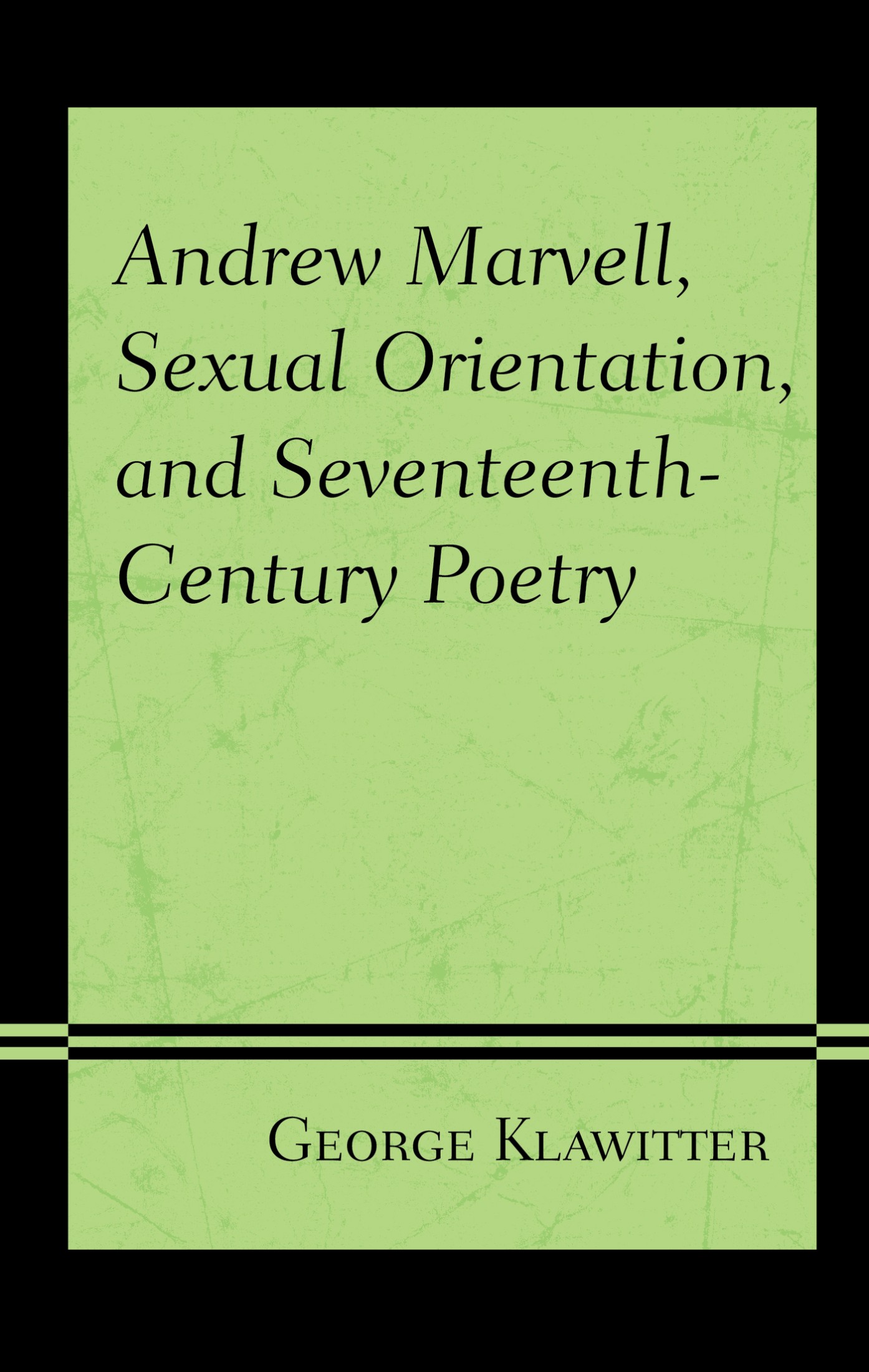
Andrew Marvell, Sexual Orientation, and Seventeenth-Century Poetry
Andrew Marvell, Sexual
Orientation, and Seventeenth
Century Poetry
George Klawitter

FAIRLEIGH DICKINSON UNIVERSITY PRESS
Madison Teaneck
Published by Fairleigh Dickinson University Press
Copublished by The Rowman & Littlefield Publishing Group, Inc.
4501 Forbes Boulevard, Suite 200, Lanham, Maryland 20706
www.rowman.com
Unit A, Whitacre Mews, 26-34 Stannary Street, London SE11 4AB
Copyright 2017 by George Klawitter
All rights reserved. No part of this book may be reproduced in any form or by any electronic or mechanical means, including information storage and retrieval systems, without written permission from the publisher, except by a reviewer who may quote passages in a review.
British Library Cataloguing in Publication Information Available
Library of Congress Cataloging-in-Publication Data Available
ISBN 978-1-68393-103-4 (cloth : alk. paper)
ISBN 978-1-68393-104-1 (electronic)
 TM The paper used in this publication meets the minimum requirements of American National Standard for Information Sciences Permanence of Paper for Printed Library Materials, ANSI/NISO Z39.48-1992.
TM The paper used in this publication meets the minimum requirements of American National Standard for Information Sciences Permanence of Paper for Printed Library Materials, ANSI/NISO Z39.48-1992.
Printed in the United States of America
In memory of
John M. Wallace
My thanks to editors who have graciously given permission to incorporate the following articles into this book:
Klawitter, George. Andrew Marvell and the Nymphs Little Foot. New Perspectives on Andrew Marvell. Ed. Gilles Sambras. Reims: Epure, 2008. 14560.
. Andrew Marvells The Gallery: Clora Comes Home. Am. Notes & Queries 25 (Oct. 2012): 2026.
. Andrew Marvells Use of John Donne: The Definition of Love. Appositions, vol. 3 (2010). Online. http://appositions.blogspot.com/2010/05/george-klawitter-marvells-use-of-donne.html.
. Little T.C.: Ekphrastic Poem or Political Commentary? Explorations in Renaissance Culture 37 (Summer 2011): 15560.
. Marvells Damon the Mower as Orpheus. Am. Notes & Queries 21 (Spring 2008): 4245.
. Sexual Imagery in Marvells Daphnis and Chloe. University of Dayton Review (Summer 1989): 5156.
. The Subliminal Muse in Marvells Unfortunate Lover. Explorations in Renaissance Culture (Summer 2009): 7487.
Sexuality changes. Sexualities change. If both of these statements are true, as I believe them to be, readers of Renaissance poetry have little call to force Renaissance poets into boxes marked heterosexual or homosexual. As we have learned from Shakespeares sonnets and Donnes verse letters, sexual identification means little when love or infatuation is involved. Just because society has furthered a normalcy for heteronormative attraction does not mean all human beings accept rigid categories for their sexual proclivities. A man who sincerely loves another man this year may very well love a woman as sincerely next year without, of course, losing his basic sense of sexual orientation. Stephen Guy-Bray, among others, has questioned the system of bifurcating sexualities into either preference for ones own sex or for the opposite sex:
Nobody is entirely happy with this system, however: it seems inadequate to describe many of the ways people now experience their sexuality, and it does not really match up with the sex lives of people in the past. Fluidity in object choice increasingly appears to be and to have been the rule rather than the exception for many people, if not most.
Of course, choosing a sex partner is easier if there are not laws on the books to punish ones preferences. When we set out to assess sexual attraction in previous ages and civilizations, we are up against more than an expanse of time: people in the past had different social and political challenges, so the psychology of their sexual needs, if not their sexual practices as well, adapted to the structures and expectations of their tribes, clans, or countries. When we study the past, we can research legal documents and private correspondence to understand the effects of sexualities on societies, but if we really want to appreciate a peoples feelings about sex, we must read their poetry, where emotion best rises into language with an economy of words. Thus I am taking Andrew Marvell under a literary microscope to decipher his amatory emotions as I read his poems, both delicate and tough, against a sample of his contemporary poets. What I conclude about his sexual orientation will emerge chapter by chapter, for some readers not an easy foray.
Often aligned with human sexuality, the very real emotion of love differs century to century, culture to culture, even generation to generation. When Sir Thomas Browne approaches the subject in his Religio Medici, we today may blink twice at his sentiments:
I confesse I doe not observe that order that the Schooles ordaine our affections, to love our Parents, Wives, Children, and then our friends; for excepting the injunctions of Religion, I doe not finde in my selfe such a necessary and indissoluble Sympathy to all those of my bloud, even those to whom I owe the principles of life; I never yet cast a true affection on a Woman, but I have loved my Friend as I do vertue, my soule, my God.... I love my friend before my selfe, and yet me thinkes I do not love him enough; some few months hence my multiplied affection will make me beleeve I have not loved him at all; when I am from him, I am dead till I bee with him, when I am with him, I am not satisfied, but would still be nearer him; united soules are not satisfied with embraces, but desire to be truly each other, which being impossible, their desires are infinite, and must proceed without a possibility of satisfaction.
Today we presume our deepest affections are reserved for our spouse, but for Browne and, I think we can presume, his culture, his generation, and possibly even his century, his most tender devotion was reserved for his friend. A pious reader may like to think friend in this context is a metaphor for Christ, but that does not seem to be anywhere hinted in the passage. Browne is talking about a flesh and blood, if generic, live human being. He probably had at the time a specific man (I presume man) in mind.
One problem today with understanding Renaissance sexuality is that we tend to think that our sexual configurations were also true in the Renaissance. But as Phyllis Rackin has pointed out, gender identification then was quite different from what it is today:
Grounded on sexual desire, our assumptions about gender are based on models of sexual orientation. Contemporary gender ideology constructs a kind of metaphysics of desire that assumes, first, that it is the norm to desire either men or women (not both) and, second, that the gender of the object of sexual desire determines the desiring persons psychic and gender identity. According to our cultures prevailing norms, a person, either male or female, who desires women is defined as masculine, and a person, either female or male, who desires men is defined as feminine. A person who desires both men and women we call bisexual. In the last case, the desiring subject is conceived as divided (bisexual) in order to maintain the ideologically motivated gender categories as inviolate.
Font size:
Interval:
Bookmark:
Similar books «Andrew Marvell, Sexual Orientation, and Seventeenth-Century Poetry»
Look at similar books to Andrew Marvell, Sexual Orientation, and Seventeenth-Century Poetry. We have selected literature similar in name and meaning in the hope of providing readers with more options to find new, interesting, not yet read works.
Discussion, reviews of the book Andrew Marvell, Sexual Orientation, and Seventeenth-Century Poetry and just readers' own opinions. Leave your comments, write what you think about the work, its meaning or the main characters. Specify what exactly you liked and what you didn't like, and why you think so.

